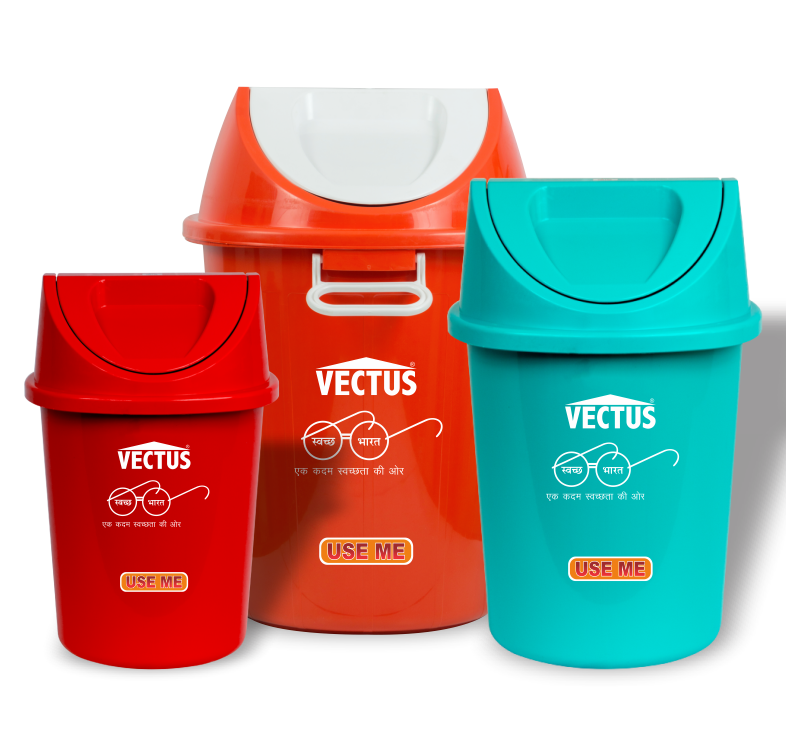Effective waste management is a crucial aspect of maintaining cleanliness and hygiene in both residential and commercial settings. Among the various tools and systems designed to aid in waste disposal, plastic dustbins stand out due to their practicality and efficiency. Despite the growing concerns about plastic use, plastic dustbins offer several advantages that make them indispensable in waste management. Here are five reasons why plastic dustbins are helpful in waste management.
1. Durability and Longevity
One of the primary benefits of using a plastic dustbin is its durability. Plastic is a robust material that can withstand rough handling and harsh environmental conditions. Unlike metal bins that can rust or wooden bins that can rot, plastic dustbins are resistant to corrosion and decay. This makes them particularly suitable for outdoor use, where they are exposed to the elements. The long lifespan of plastic dustbins means that they do not need to be replaced frequently, reducing the overall cost and environmental impact associated with waste management. This durability is a significant advantage in both residential areas and commercial spaces, ensuring that waste is contained and managed effectively.
2. Cost-Effectiveness
Plastic dustbins are generally more affordable compared to bins made from other materials such as metal or wood. This cost-effectiveness is an important consideration for households, businesses, and municipal authorities looking to manage waste on a budget. The lower price point of plastic dustbins allows for the widespread distribution and availability, ensuring that even communities with limited resources can implement effective waste management systems. Additionally, the durability and low maintenance requirements of plastic dustbins further enhance their cost-effectiveness, making them a practical choice for long-term waste management solutions.
3. Versatility and Variety
Plastic dustbins come in a wide range of sizes, shapes, and colors, offering versatility that is essential for efficient waste management. Whether you need a small bin for kitchen waste or a large container for industrial refuse, there is a plastic dustbin to meet your needs. The variety of designs and features available also includes options with lids, wheels, and foot pedals, enhancing their functionality and convenience. This versatility makes plastic dustbins suitable for diverse environments, from homes and offices to public spaces and industrial sites. The ability to choose from various colors also aids in waste segregation, promoting recycling and reducing contamination of recyclable materials.
4. Hygiene and Sanitation
Maintaining hygiene is a critical aspect of waste management, and plastic dustbins play a significant role in achieving this goal. Plastic is non-porous and easy to clean, preventing the absorption of liquids and the buildup of odors. This is particularly important for household plastic items like dustbins, which frequently contain food scraps and other organic waste. Regular cleaning of plastic dustbins is simple and effective, reducing the risk of bacterial growth and pest infestations. Additionally, many plastic dustbins are designed with tight-fitting lids that help contain odors and prevent access by animals, further enhancing sanitation and hygiene.
5. Environmental Considerations
While the use of plastic has raised environmental concerns, plastic dustbins can contribute positively to waste management when used and disposed of responsibly. First, their durability and long lifespan mean that fewer resources are needed to produce replacements, reducing overall plastic waste. Second, many plastic dustbins are now made from recycled materials, supporting the recycling industry and promoting the circular economy. Finally, the use of plastic dustbins for waste segregation and recycling helps divert significant amounts of waste from landfills, reducing environmental pollution and conserving natural resources. By choosing high-quality, durable plastic dustbins and participating in recycling programs, consumers can mitigate some of the environmental impacts associated with plastic use.
Conclusion
In conclusion, plastic dustbins offer numerous advantages that make them invaluable in waste management. Their durability and longevity ensure that they can withstand the rigors of daily use and harsh environmental conditions, making them a reliable choice for both indoor and outdoor applications. The cost-effectiveness of plastic dustbins makes them accessible to a wide range of users, from individual households to large municipalities. Their versatility and variety allow for the customization of waste management systems to meet specific needs, promoting efficient waste segregation and disposal.
Hygiene and sanitation are critical aspects of waste management, and plastic dustbins excel in this area due to their non-porous nature and ease of cleaning. Finally, while the environmental impact of plastic cannot be ignored, the responsible use of plastic dustbins, particularly those made from recycled materials, can support sustainable waste management practices.
Overall, plastic dustbins, as essential household plastic items, play a crucial role in maintaining cleanliness and hygiene, supporting recycling efforts, and ensuring effective waste management. By understanding and leveraging their benefits, individuals and communities can contribute to a cleaner and more sustainable environment.



